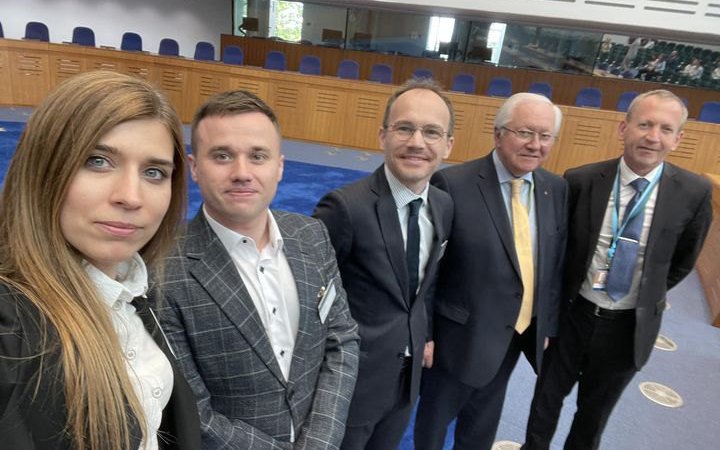The European Court of Human Rights today announced the judgment on the merits in the first inter-state case of Ukraine vs Russia concerning Crimea.
This was reported by the Commissioner for the European Court of Human Rights Marharyta Sokorenko.
"The ECHR has recognised that the Government of Ukraine has proved the existence of systematic violations (of the rights - ed.) of our citizens since the beginning of Russia's occupation of Crimea in February 2014," Sokorenko said in a post on Facebook.
This decision is the first in which an international court has recognised the Russian Federation as responsible for a policy of large-scale and systematic violations of various human rights and freedoms in the temporarily occupied Crimea.
The court unanimously found that the Ukrainian side had proved the existence of administrative practices on the part of Russia:
- disappearances and lack of effective investigation in this regard under Article 2 of the Convention;
- ill-treatment and unlawful detention under Articles 3 and 5 of the Convention;
- the unlawful spread of Russian legislation, as a result of which the courts in Crimea cannot be considered as established in accordance with the law, under Article 6;
- forced change of Ukrainian citizenship to Russian citizenship under Article 8 of the Convention;
- systematic mass searches in violation of Article 8;
- forced transfer of convicted persons to the territory of the Russian Federation in violation of Article 8;
- attacks and harassment of religious leaders who do not belong to the Russian Orthodox Church, and the seizure and confiscation of property in this regard, in violation of Article 9;
- the closure of non-Russian media, including Ukrainian and Crimean Tatar TV stations, and the ongoing harassment and attacks on journalists in violation of Article 10;
- prohibition of peaceful assemblies and protests and attacks and persecution of their organisers in violation of Article 11 of the Convention;
- expropriation of private property in violation of Article 1 of Protocol No. 1;
- the closure of Ukrainian and Crimean Tatar classes in violation of Article 2 of Protocol No. 1;
- violation of the right to freedom of movement between the occupied territory of Crimea and mainland Ukraine;
- discrimination against Crimean Tatars;
- violation of the rights of political prisoners, the impossibility of their return to Ukraine and their ill-treatment in the occupied Crimea and the territory of the Russian Federation.
"In January 2021, with the decision on the admissibility of the Crimean case, we (the ECHR, which issued the decision, and the Government of Ukraine, which has constantly proved all the facts of the seizure of Crimea and human rights violations) demolished Russia's version of the 'expression of will' and 'legal accession of Crimea to the Russian Federation'," the Commissioner said.
She added that today's decision essentially "nullifies Russia's decades-long claims that human rights in Crimea are respected".
"This decision is unique - a number of conclusions and violations under the Convention have been recognised by the ECtHR today for the first time in its practice (application of Russian legislation, illegal courts, forced change of citizenship). This is an important stage and result on the way to bringing the aggressor to international legal responsibility!" Sokorenko concluded.








